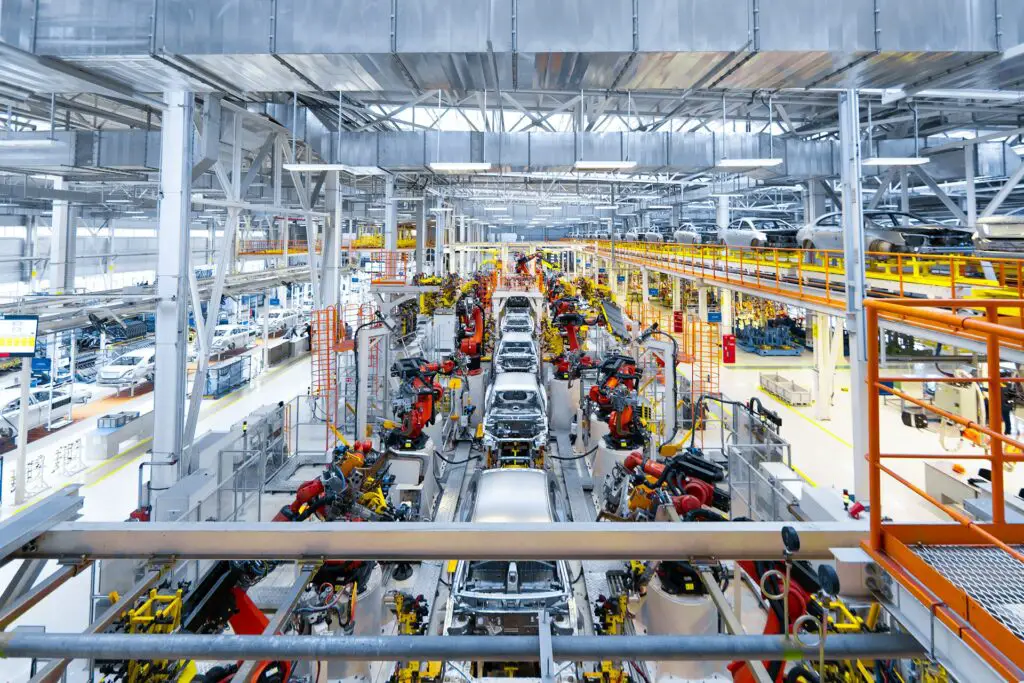Michigan industries brace for potential economic fallout as Trump imposes 25% tariffs on imported steel and aluminum, sparking debate among businesses and policymakers.
Michigan Businesses Fear Fallout From Trump’s 25% Tariff on Steel and Aluminum

LANSING, Mich. — A fresh wave of tariffs imposed by President Donald Trump is set to take effect next month, placing a 25% levy on imported steel and aluminum and triggering concerns among Michigan manufacturers. The move, announced Tuesday, is part of the administration’s broader global trade policy, which aims to strengthen domestic production but could lead to economic turbulence, particularly in the auto-heavy Great Lakes State.
Michigan’s Heavy Reliance on Imports Raises Alarm
While the tariffs on aluminum and steel are intended to bolster American industries, critics argue they may do more harm than good, particularly in Michigan, where manufacturing relies heavily on imported materials. More than 80% of aluminum used in the U.S. was sourced from imports in 2023, with Canada, the United Arab Emirates, and Mexico among the key suppliers.
The automotive sector, a cornerstone of Michigan’s economy, is particularly vulnerable. The state’s automakers and suppliers depend on steady access to affordable raw materials, and industry leaders worry the tariffs will drive up costs, reduce competitiveness, and force companies to pass expenses onto consumers.
Business Leaders Split on Impact
According to an ongoing survey by the Michigan Chamber of Commerce, a majority of business respondents view the tariffs as detrimental:
- 53% predict a significant negative impact on their operations.
- 54% oppose tariffs as an economic tool, while 33% see them as necessary to protect American jobs and businesses.
- Sentiment varies based on trade partners, with 91% supporting tariffs on China, but only 16% approving them for Canada and 48% for Mexico.
Some business leaders, however, remain cautiously optimistic, arguing that selective tariffs could strengthen American industry and curb illicit trade practices. Supporters believe the policy could pressure foreign governments into fairer trade agreements while safeguarding domestic steelworkers’ jobs.
Temporary Exemptions for Canada and Mexico—For Now
For the moment, the Trump administration has paused tariffs on aluminum and steel for Canada and Mexico after securing temporary trade agreements with Canadian Prime Minister Justin Trudeau and Mexican President Claudia Sheinbaum. These exemptions will last at least until March, leaving Michigan businesses in a state of uncertainty.
Auto Industry Warns of Rising Costs

The auto industry, which employs hundreds of thousands across the state, could see increased production costs that may be passed down to consumers. Analysts predict that if the tariffs remain in place long-term, the cost of vehicles and appliances could rise, further burdening Michigan’s already inflation-weary residents.
What we’re seeing is a lot of cost, a lot of chaos,” Ford Motor CEO Jim Farley said meeting with at a Wolfe Research conference. “If you look at the tari?s, let’s be real honest, long term, a 25% tari? across the Mexico and Canadian border will blow a hole in the U.S. industry that we have never seen.”
Manufacturing Workers and Steel Industry Stand to Gain
On the other hand, the domestic steel and aluminum industries could see a boost, with U.S. producers potentially ramping up output. Proponents argue that tariffs level the playing field for American workers and provide leverage in future trade negotiations.
“I support any policy that ensures fair competition and strengthens our domestic supply chain,” said a steelworker in Detroit. “We can’t rely on other countries forever.”
Michigan Chamber of Commerce Seeks Industry Feedback
As Michigan businesses weigh the impact, the Michigan Chamber of Commerce is seeking additional feedback from industry members. Business owners are encouraged to participate in a quick two-minute survey to share their perspectives about tariffs on aluminum and steel as the situation develops.
The Chamber remains actively engaged with federal policymakers, advocating for Michigan’s economic interests and monitoring any potential adjustments to trade policy.
What’s Next for Michigan’s Economy?
The long-term implications of Trump’s tariffs on aluminum and steel remain uncertain. While some hope the move forces trading partners into more favorable agreements, others worry about retaliatory measures that could escalate global trade tensions.
For Michigan, a state deeply embedded in global supply chains, the stakes are high. Policymakers, business leaders, and workers alike will closely watch how these tariffs play out in the coming months.
Find More Interesting Feature Stories From ThumbWind
- Michigan Feature Stories – Unveiling the diverse and vibrant people, captivating places, and remarkable events that make the Great Lake State unique.
- Weird Political News – A sarcastic take on official news, exploring the absurdities of U.S. politics with a humorous perspective.
- Michigan News – News and events from Michigan’s Upper Thumb region, including local stories and impactful community updates.
Your Turn – Like This, or Loath it – We Want To Hear From You
Please offer an insightful and thoughtful comment. We review each response. Follow us to have other feature stories fill up your email box, or check us out on ThumbWind Publications.




